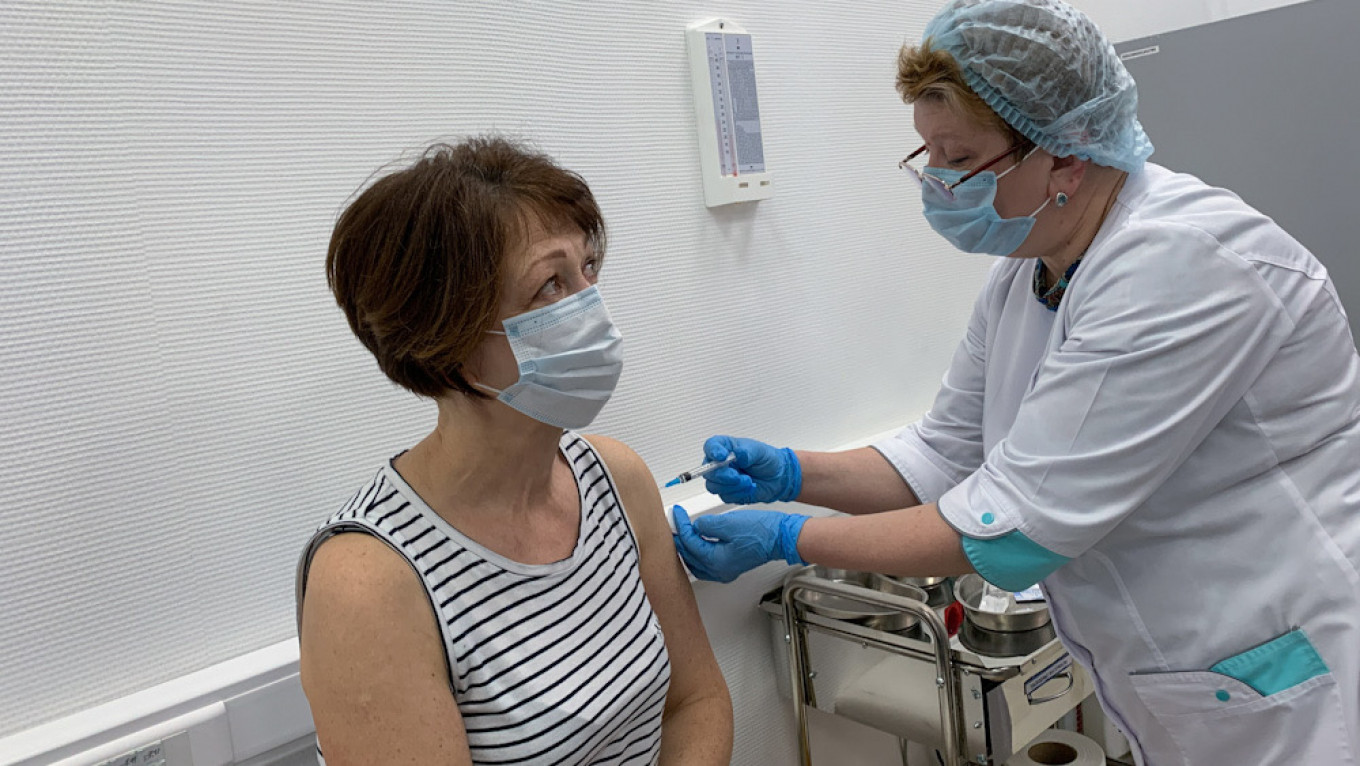
Russia’s Sputnik V coronavirus vaccine appears significantly less effective in combating the South African variant of the virus, a new laboratory study of 12 cases has shown.
Scientists in the U.S. used blood samples from Argentinians who had been vaccinated with Sputnik V to investigate whether the antibodies they had produced would effectively fight various mutations of the virus which have been designated “variants of concern” by the global health community.
The researchers found that the immune response produced against variant B1.351 — the strain first identified in South Africa — was “markedly reduced” compared with the reaction to the initial coronavirus strains.
Sputnik V was also less effective in combating all variants with the E484K mutation — a specific mutation, nicknamed “Eek” by some scientists, which is present in the South African and Brazilian variants of the virus, and has recently been discovered in the U.S. and Japan.
“Sera from Sputnik vaccine recipients in Argentina had a median 6.1-fold and 2.8-fold reduction in neutralizing potency against B.1.351 and the E484K mutant spike, respectively,” the study said.
In eight of the 12 cases — 67% — the researchers found antibody responses that were “indicative of a failure to neutralize” against the South African variant, pointing to “markedly reduced neutralization titers” in the blood samples.
The results appear to contradict earlier statements by Russia’s health watchdog that claimed Sputnik V provided effective protection against variants of the virus. No research into the effectiveness of the Sputnik V vaccine against virus mutations in the real world has been published.
Sputnik V developers have criticized the study, branding the conclusions and methodology “weak.”
A source close to the Gamaleya Institute, which is developing the jab, told The Moscow Times: “The Gamaleya Institute’s own studies, based on a much larger sample than the 12 people used in this study, will be published in May in a peer-reviewed journal and demonstrate a higher efficacy of the Russian vaccine versus novel strains, including the South African variant, than that of other vaccines, including Pfizer.”
The source also highlighted that one of the study’s authors is a consultant for Pfizer/BioNTech — a fact the authors noted in the original paper — whose vaccine is based on mRNA technology.
The U.S. researchers added that Sputnik V was “likely to retain strong efficacy at preventing severe Covid-19, even in the case of infection by variants of concern,” but said their data pointed to a “concerning potential of B1.351 [the South African strain], and to a lesser extent, any variant carrying the E484K substitution, to escape the neutralizing antibody responses that this immunization elicits.”
This study — led by researchers at the Icahn School of Medicine at Mount Sinai in New York — was based on laboratory analysis using blood from 12 people who had been vaccinated with Sputnik V. The article is a preprint publication, meaning it is yet to be peer-reviewed.
The AstraZeneca vaccine, which is based on similar adenovirus technology to Sputnik V, has also previously been found to deliver less effective protection against mild and moderate infections from the South African variant, although in a clinical trial with 2,000 participants there were no reported severe cases, suggesting vaccines may still be effective in preventing hospitalizations and deaths.
The study into Sputnik V also found that the jab appeared to be effective in preventing infection with the British variant of the virus — with antibody responses at a similar level to those noted in the peer-reviewed research into Sputnik V’s overall effectiveness, which was conducted and published before virus mutations had been identified. The Sputnik V jab was found to have 91.6% efficacy against Covid-19 in a paper published in The Lancet.
The British variant has shown faster transmissibility rates — becoming the dominant strain of the virus in the U.K. and many other European countries — as well as higher mortality rates.
The head of Russia’s Rospotrebnadzor consumer watchdog, which is leading the country’s response against the pandemic, said only 10 cases of the South African variant have been detected in Russia. Anna Popova added Tuesday that 103 cases of the British variant have been found. She also warned Russians against unnecessary travel and said border closures had helped keep mutations of the coronavirus largely out of Russia.
“Since the Sputnik vaccine is now widely in use not only in Russia, but also in countries like Argentina, Chile, and Hungary, where some of the variants of concern … are more widespread, it is critical to assess the neutralizing activity of Sputnik vaccine-elicited antibody responses against these variants and mutant spikes,” the researchers noted.
Argentina’s president, who was vaccinated with Sputnik V, tested positive for the coronavirus over the weekend. He was experiencing only mild symptoms, which his doctors credited to having received the jab.